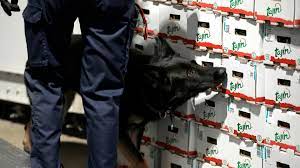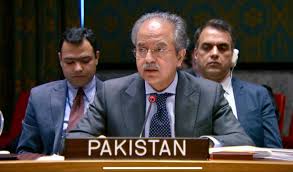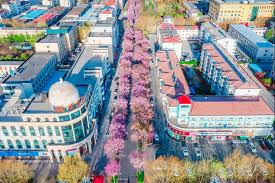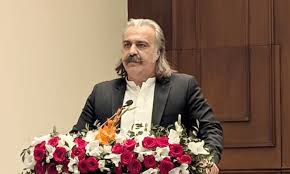EU ports urged to team up to fight ‘very creative’ drug smugglers

Brussels: Drug smugglers in the EU have become so “very creative” that the bloc’s seaports should join forces to combat their ever-changing tactics, Belgian Interior Minister Annelies Verlinden said.
That idea is to be promoted Wednesday when Verlinden, along with the European Commission, meets top representatives from around 20 EU ports, Europol officials, other interior ministers and sea transport executives to launch the European Ports Alliance.
The inauguration will take place in Antwerp, the Belgian port city that is the main gateway for cocaine trafficked into Europe.
Despite stepped-up screening, cocaine seizures at the vast Antwerp port each year breaks records. Last year, 116 tonnes of the drug were intercepted there. And Antwerp is frequently rocked by violence linked to gangs fighting over the hugely lucrative smuggling.
The traffickers “are always very creative and that is our challenge — they pay no heed to laws on working time, right to privacy, borders,” Verlinden said.
“So we need to cooperate to be effective,” she said. “We need to create this network to combat organised crime.”
The port alliance aims to crack down on both the smuggling and the infiltration of the ports by criminal networks.
Private sector buy-in is needed because the steps to be taken could impact legal trading, so a good “balance” needs to be found, the Belgian minister said.
The partnership has a goal of harmonising security measures, to reduce the ability of the gangs to cast around for ports with laxer checks — and also to avoid trading companies moving away to ports with less red tape and security delays.
“We know that the companies are very flexible and, if something isn’t working, that they can go elsewhere in a heartbeat. We also want to avoid that,” Verlinden said, stressing how economically crucial Antwerp’s hub was to Belgium.
“In Antwerp, we have a record number of seizures, but we never know what we didn’t manage to seize,” the minister said, listing reinforced measures with security services, customs officers and a port security corps.
Antwerp’s hub now boasts a mobile scanner that passes over selected containers. Five other scanners are to be delivered this year.
Around 100 more customs officers are also expected to be assigned to the port.
According to Belgium’s customs service, only 1-2 percent of arriving containers are scanned.
“What we want is to scan all containers coming from risk countries,” including in Latin America and west Africa, Verlinden said.
She noted that some of those containers might transit through another port not considered a risk.
The minister also backed the increased use of cameras, but acknowledged that they raised problems when it came to companies wanting to protect trade secrets.
In 2021 Belgium had a breakthrough when, in collaboration with French and Dutch police, it cracked the encrypted communications network Sky ECC favoured by criminal gangs.
That led to a cascade of arrests and raids, and a drug trafficking trial of 120 suspects currently underway in Brussels.
“We know that we are upsetting the criminal groups and that is creating a reaction of panic, and that heightened violence could be linked to the panic,” Verlinden said.
The decrypted Sky ECC messages also laid bare a high level of corruption in Belgium.
“We realised that members of the customs service, the police, courts, lawyers could have been implicated in these criminal networks,” she said.
“On corruption, you have to be strict…. That’s a fight that goes on,” Verlinden said, after two Belgian police officers were recently charged in a drugs case.
“I don’t believe — and I say this sincerely — that we are living in a narco-state. But we needn’t go further in space or time to realise (the danger of) the mafia in Italy. Obviously we shouldn’t head towards that sort of situation.”





